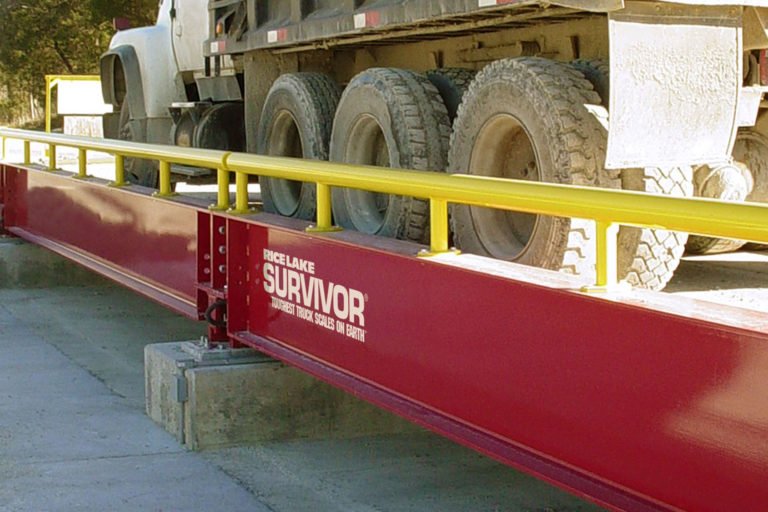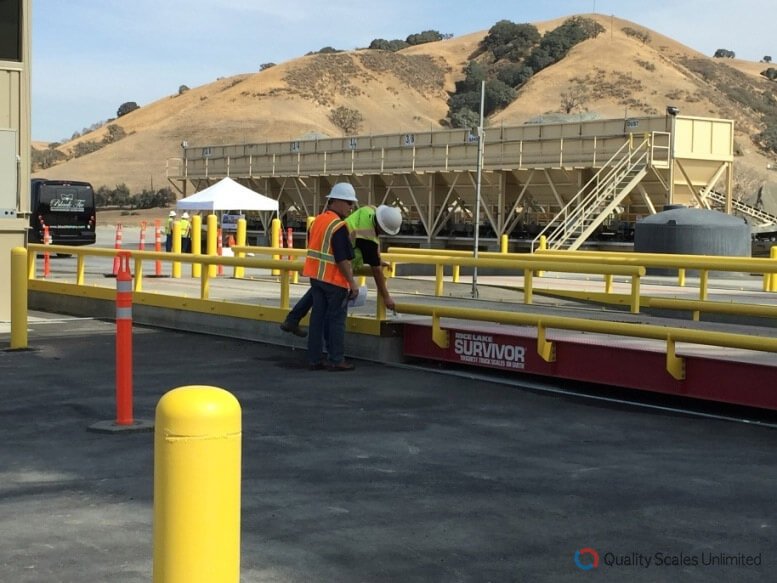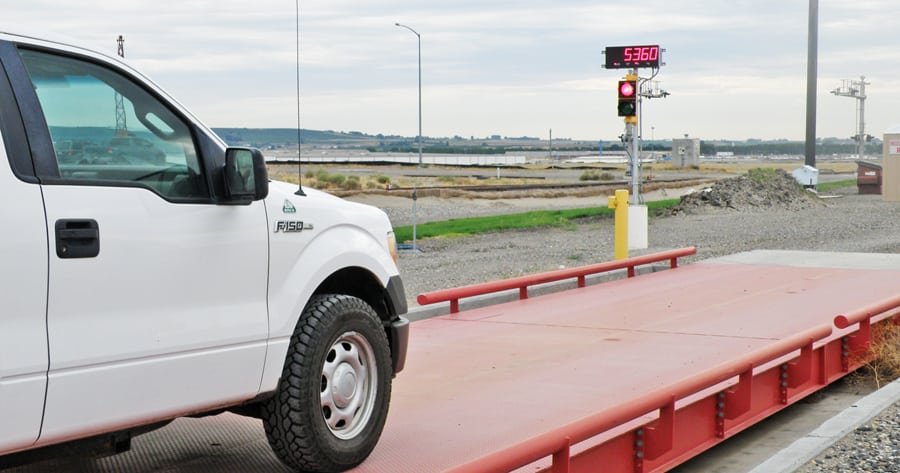



Common Issues With Owning A Truck Scale
Performance issues can creep up at any time when owning any piece of machinery. The same with owning a car, an issue can arise where you lose power or have a fluid leak. The same goes for truck scales. This article will breakdown the common problems with truck scales. From scales not leveling out to scales reading the incorrect weight, these are some of the issues that will arise during the course of truck scale ownership. Depending on the weighing applications will determine some of the issues you may encounter. Below is a list of common issues along with tips to maintain the integrity of your truck scale. Be sure to check out some more of our articles over at the American Scale learning hub.
DEBRIS AND WATER BUILDUP
A very common issue with owning a legal for trade truck scale is the buildup of debris and dirt under the truck scale. This buildup can affect the performance of the truck scale by the debris collecting around the load cell and cables, thus causing possible inaccurate measurements. A good way to combat this is to clean under the scale around two times a year. depending on the environment (rock quarries, asphalt companies, etc) you may want to have the underside of the scale cleaned every quarter or four times a year. It is wise to do weekly checks as well to ensure the integrity of the scale. The length of time needed toVisually inspect the platform daily basis to ensure that the scale is free of debris.If you are using a pit-mounted scale ensure the drainage system is not blocked.Check to make sure no water is ponding under or around your scale. Water under the scale can lead to rust and corrosion.Check the underside of a steel deck and power wash any debris from the underside.
INACCURATE SCALE READING
Accurate scale reading is a big problem that can arise during your truck scale ownership. When a scale reads inaccurately, it can directly affect the overall measurements of each truck you weigh. There are a few contributing factors that will cause inaccurate reading. Besides from the aforementioned debris and dirt buildup, one has to worry about possible electrical shorting which can cause the load cells to work inconsistently. The lifespan of a scale can come down to how well it is serviced and maintained. When scheduling a scale calibration, it will help keep your Depending on whether your scale is pit style or an above ground truck scale, you will want to use a pressure washer and a vacuum truck.Ensure drivers slowly load the scale to prevent abrupt changes in weight.Make sure that the scale is zeroing out between each weight readings.Check the underside for any buildup and power wash any debris buildup.Check around the load cell and cables to ensure everything is connected properly.
DAMAGED OR INTERMITTENT LOAD CELL
Maintaining the integrity of the electronic load cell is one of the most important aspects of owning and operating a truck scale. When a load cell is damaged, it can cause a slew of problems from not zeroing out to not reading the correct weight. Moisture, electrical issues and even vibrations can contribute to a load cell not operating properly. Note: You most likely won’t have any electrical issues with analog load cells.Ensure the scale location is void of any excess vibrating (nearby construction, landscaping, etc).Check the load cell’s stability by doing test measurements between different weights.Check the ground connections to ensure the cables are firmly connected and free of corrosion.
ELECTRICAL ISSUES
Scales are composed of multiple components, and even though these components may be small in size, they can have a big impact on the functionality of the scale. If you have a stainless steel setup then it can lead to issues when there is lightning in the vicinity. Some issues can happen inside of the scale indicators. Electrical issues can affect how the scale operates and can possibly lead to inaccurate weight measurements or shorting out of the components. Lightning strikes can cause issues with all electrical components, including power surges and affect calibration performance as well. Your scale accessories could be a possible cause of electrical issues, so it is a good idea to check all the accessoriesCheck scale installation and that the load cells are grounded correctly.Check junction boxes for moisture buildup and that they are properly sealed and dry.Opt for lightning and transient protection for the scale and load cells.Check your remote display cable to ensure there is no exposure .
CONCLUSION
At American Scale, we want to provide as much information for our audience as possible. When it comes to truck scale ownership and other systems that use weighments, the main thing to remember when keeping your scale in operating order, it is good to look at preventative maintenance. The truck scale installation process if not done properly will lead to more issues down the road. A good maintenance schedule will help prevent issues with the truck scale foundation, scoreboard and the scale system overall. Also keeping a well serviced scale will also help keep your warranty in order as well. The tips mentioned above can help with preventing further issues from arising as well as help extend the overall life of the scale and its components. Setting up a daily, weekly and monthly cleaning and maintenance schedule is a good way to keep your scale measuring and working properly. Keep in mind that scale manufacturers will have different recommendations for maintaining their scales. Refer to the manual of the scale you own for brand specific tips. For more articles concerning your truck scale, head over to our leaning hub where you can find articles like How much do truck scales cost to the importance of truck scale software.
